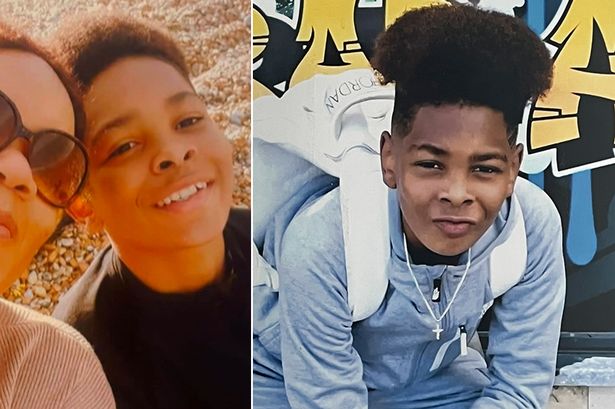The tragic death of 14-year-old Kelyan Bokassa, who was brutally stabbed approximately 27 times on a London bus, has sent shockwaves through the community and ignited a renewed focus on youth violence. The young boy was returning home from school in southeast London when he was attacked in what appears to be a targeted and premeditated assault. This senseless act of violence has left a family devastated and a community grappling with the loss of a young life full of promise. The details surrounding the incident, as presented in court, paint a grim picture of the escalating dangers faced by young people in some urban environments.
Two teenagers, also minors, have been charged with Kelyan’s murder. The court heard chilling testimony regarding the events leading up to and culminating in the fatal stabbing. Witnesses described a seemingly unprovoked attack, with the two accused allegedly boarding the bus shortly before the incident. The prosecution presented evidence suggesting a pre-existing animosity between the accused and the victim, although the exact motive remains unclear. The sheer number of stab wounds inflicted on Kelyan suggests a level of brutality that is deeply disturbing and raises questions about the mindset of the young perpetrators. The case has also raised concerns about the ease with which young people can access and carry weapons, and the apparent normalization of violence within certain segments of society.
The incident has sparked widespread outrage and grief, with members of the community expressing their shock and sorrow at the loss of such a young life. Vigils and memorials have been held to honor Kelyan’s memory, and calls for increased action to address youth violence have intensified. Many community leaders and residents are demanding more resources for youth programs, improved mental health services, and stricter enforcement of laws related to knife crime. The tragedy has also underscored the need for greater community engagement and intervention strategies to prevent young people from becoming involved in violent activities.
Beyond the immediate community, the case has resonated nationally, prompting discussions about the broader societal factors contributing to youth violence. Experts point to a complex interplay of issues, including poverty, social inequality, lack of educational opportunities, and the influence of gang culture. The easy availability of knives and other weapons has also been identified as a significant contributing factor, with calls for stricter regulations and enforcement. The incident has reignited the debate about the effectiveness of current crime prevention strategies and the need for a more holistic approach to tackling the root causes of youth violence.
The trial of the two accused teenagers is expected to be a lengthy and complex process, as the court seeks to unravel the events leading up to Kelyan’s death and determine the culpability of those involved. The case will undoubtedly be closely scrutinized by the public and media, as it raises critical questions about the state of youth justice, the effectiveness of crime prevention measures, and the role of society in protecting its most vulnerable members. The outcome of the trial will have significant implications for the families involved and could potentially influence future policy decisions related to youth crime and violence prevention.
The tragic death of Kelyan Bokassa serves as a stark reminder of the devastating consequences of youth violence and the urgent need for collective action. It underscores the importance of creating safe and supportive environments for young people, providing them with opportunities to thrive, and addressing the underlying social and economic factors that contribute to violence. The case also highlights the crucial role of families, schools, communities, and law enforcement in working together to prevent such tragedies from occurring in the future. While the legal process unfolds, the focus must remain on finding solutions to the complex problem of youth violence and ensuring that no other family has to endure the unimaginable pain of losing a child in such a senseless and brutal manner.














